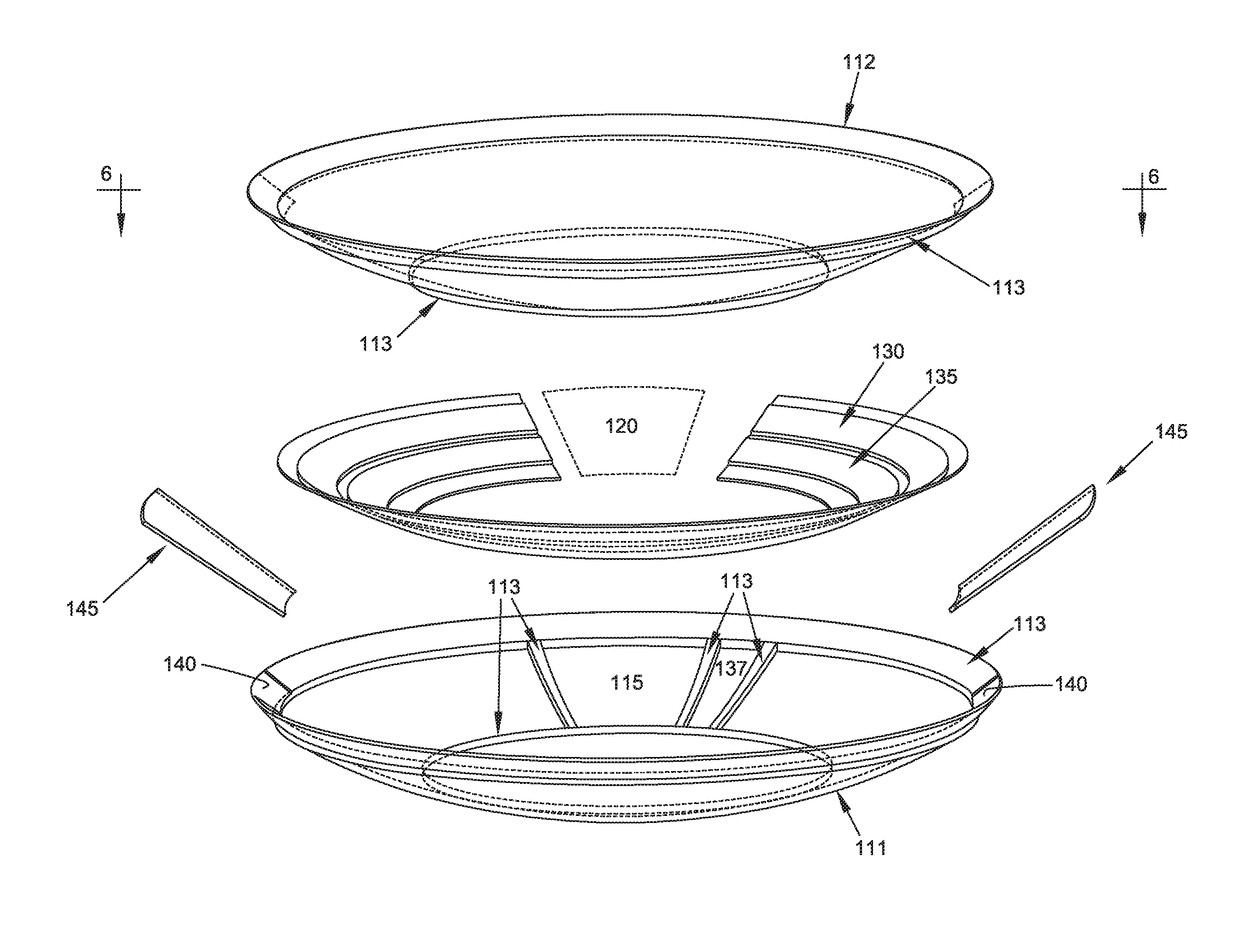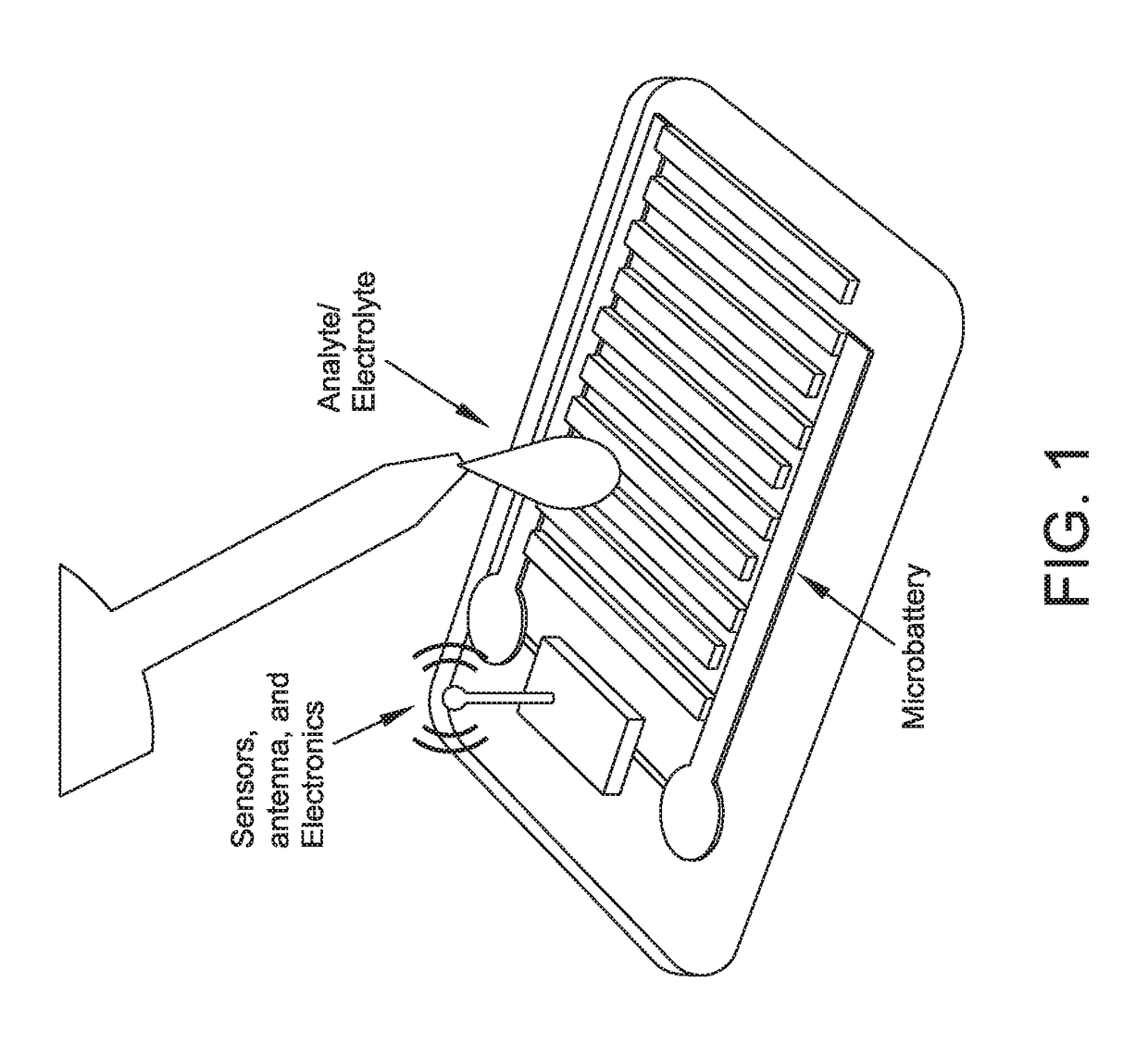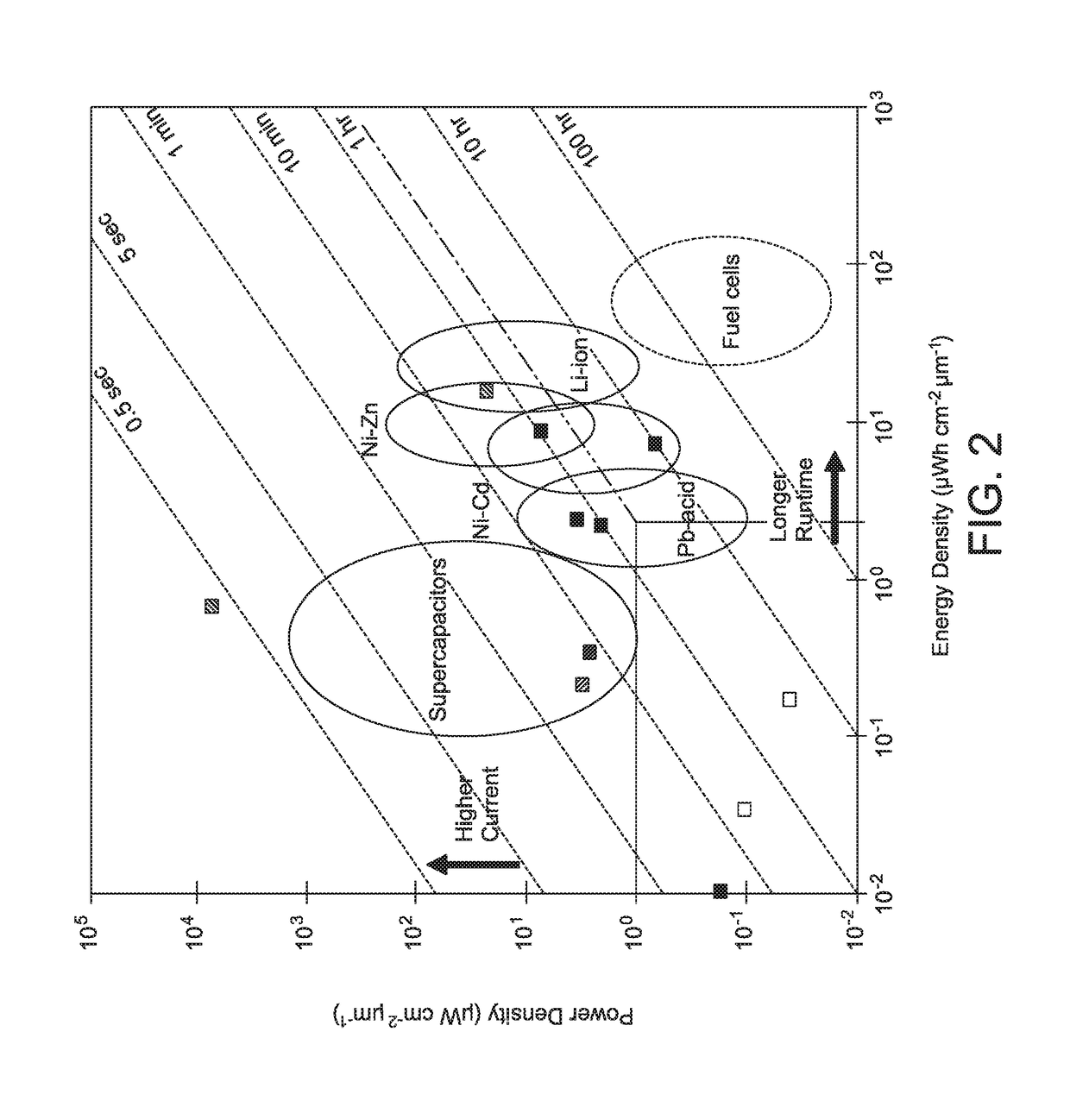Point-of-use-activated microbattery and biocompatible electronic device incorporating the same
a micro-battery and point-of-use technology, applied in the direction of batteries, deferred action cells, instruments, etc., can solve the problems of poor candidates for smart contact lens applications, prone to dangerous failures of flammable components, and the best packaging of these four commercial micro-batteries is subject to dangerous failures, etc., to achieve the effect of improving wearer comfor
- Summary
- Abstract
- Description
- Claims
- Application Information
AI Technical Summary
Benefits of technology
Problems solved by technology
Method used
Image
Examples
Embodiment Construction
[0066]Looking next at FIG. 2A, the present invention comprises the provision and use of a novel biocompatible electronic device 5 (e.g., an LOC, a smart contact lens, etc.) that comprises a housing 10 having a sealed control electronics chamber 15 for containing control electronics 20 for controlling the operation of biocompatible electronic device 5 (e.g, for controlling operation of a sensor 22), and a sealed electrode chamber 25 for containing the electrodes 30, 35 of a microbattery for powering control electronics 20 contained in sealed control electronics chamber 15. Electrodes 30, 35 may comprise any biocompatible material consistent with the present invention (e.g., Al—AgO, magnesium-silver chloride electrodes, magnesium-copper chloride electrodes, etc.), and are connected to control electronics 20 contained in sealed control electronics chamber 15. Sealed electrode chamber 25 has an access port 40 that is sealed by a removable tab 45, such that upon removal of removable tab ...
PUM
| Property | Measurement | Unit |
|---|---|---|
| Power Density Factor | aaaaa | aaaaa |
| Power Density Factor | aaaaa | aaaaa |
| thickness | aaaaa | aaaaa |
Abstract
Description
Claims
Application Information
 Login to View More
Login to View More - R&D
- Intellectual Property
- Life Sciences
- Materials
- Tech Scout
- Unparalleled Data Quality
- Higher Quality Content
- 60% Fewer Hallucinations
Browse by: Latest US Patents, China's latest patents, Technical Efficacy Thesaurus, Application Domain, Technology Topic, Popular Technical Reports.
© 2025 PatSnap. All rights reserved.Legal|Privacy policy|Modern Slavery Act Transparency Statement|Sitemap|About US| Contact US: help@patsnap.com



